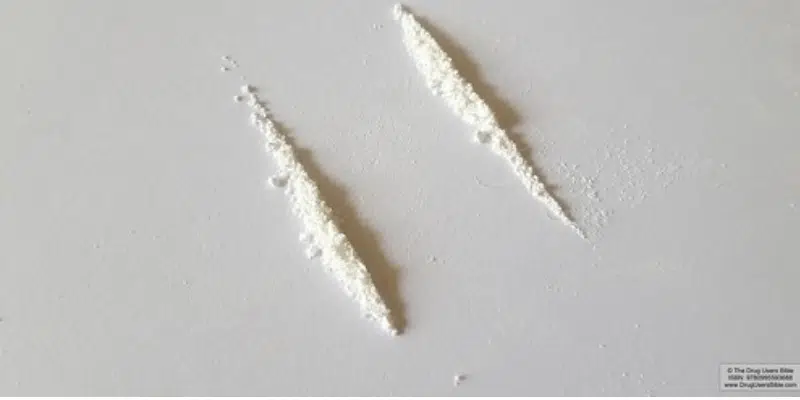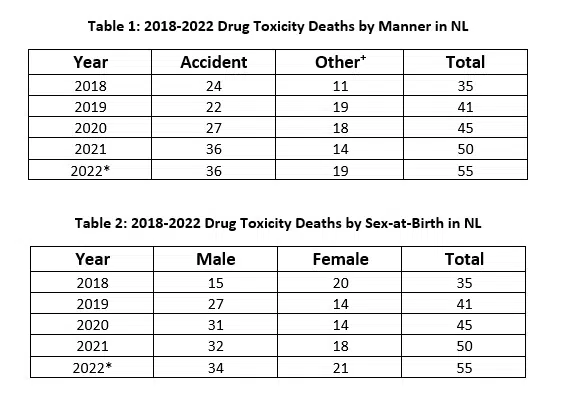Numbers released by the Chief Medical Examiner’s Office show a steady increase in overdose—or drug toxicity—deaths in Newfoundland and Labrador over the last five years. Today is International Overdose Awareness Day.
The numbers released by the Chief Medical Examiner include drug-related deaths from 2018 to 2022. Statistics from 2022 may not be fully up-to-date because some cases are still under investigation, while accurate numbers for this year are not yet available. Blood samples are sent to the United States for toxicology and that process can take months.
Statistics show that drug toxicity deaths, formerly known as overdoses, have risen steadily since 2018 when a total of 35 deaths were reported. That number rose to 41 in 2019, and by 2022, the number was up to 55 with more results yet to come in.
Last month, Chief Medical Examiner, Dr. Nash Denic issued a warning following a spike in cocaine-related deaths in the previous month. He indicated that there had been 11 suspected cocaine-related deaths in the province, including 20-year-old Ben Olivero who passed away suddenly in broad daylight from suspected drug toxicity. His passing spurred a public outcry and rally at Confederation Building with families calling for greater government action to deal with the growing mental health and addictions crisis.
In 2022, 25 of the 55 confirmed drug toxicity deaths involved opioids other than Fentanyl. Fentanyl was detected in another five drug toxicity deaths, and cocaine was detected in 18 deaths. There was no break-down related to habitual users, versus those who use cocaine recreationally.
Harm Reduction Outreach staff with SWAP, which distributes clean needles and Naloxone kits, Anna Moulton says International Overdose Awareness Day is “hitting the province…differently this year, with the increase in overdose deaths.”
Moulton says their aim is to raise awareness and reduce stigma related to overdose deaths. She says the goal of harm reduction is to keep people alive long enough for them to get other supports.
“Nobody should die from using drugs,” says Moulton, who says major policy changes are needed, not just in Newfoundland and Labrador, but across the country, and around the world.
























